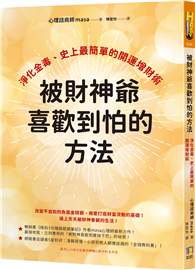The revolutionary year of 1958 epitomizes the height of the social uprisings, military coups, and civil wars that erupted across the Middle East and North Africa in the mid-twentieth century. Amidst waning Anglo-French influence, growing US-USSR rivalry, and competition and alignments between Arab and non-Arab regimes and domestic struggles, this year was a turning point in the modern history of the Middle East.
This multi and interdisciplinary book explores this pivotal year in its global, regional and local contexts and from a wide range of linguistic, geographic, academic specialties. The contributors draw on declassified and multilingual archives, reports, memoirs, and newspapers in thirteen country-specific chapters, shedding new light on topics such as the extent of Anglo-American competition after the Suez War, Turkey’s efforts to stand as a key pillar in the regional Cold War, the internationalization of the Algerian War of Independence, and Iran and Saudi Arabia’s abilities to weather the revolutionary storm that swept across the region. The book includes a foreword from Salim Yaqub which highlights the importance of Jeffrey G. Karam’s collection to the scholarship on this vital moment in the political history of the modern middle east.| FindBook |
有 1 項符合
The Middle East in 1958: Reimagining a Revolutionary Year的圖書 |
 |
The Middle East in 1958: Reimagining a Revolutionary Year 出版社:I. B. Tauris & Company 出版日期:2024-12-12 語言:英文 規格:平裝 / 248頁 / 23.39 x 15.6 x 2.54 cm / 普通級/ 初版 |
| 圖書館借閱 |
| 國家圖書館 | 全國圖書書目資訊網 | 國立公共資訊圖書館 | 電子書服務平台 | MetaCat 跨館整合查詢 |
| 臺北市立圖書館 | 新北市立圖書館 | 基隆市公共圖書館 | 桃園市立圖書館 | 新竹縣公共圖書館 |
| 苗栗縣立圖書館 | 臺中市立圖書館 | 彰化縣公共圖書館 | 南投縣文化局 | 雲林縣公共圖書館 |
| 嘉義縣圖書館 | 臺南市立圖書館 | 高雄市立圖書館 | 屏東縣公共圖書館 | 宜蘭縣公共圖書館 |
| 花蓮縣文化局 | 臺東縣文化處 |
|
|
圖書介紹 - 資料來源:博客來 評分:
圖書名稱:The Middle East in 1958: Reimagining a Revolutionary Year
內容簡介
作者簡介
Jeffrey G. Karam is an Assistant Professor of Political Science at the Lebanese American University. He is also an Associate at Harvard University’s Middle East Initiative. He is the author of several articles, book chapters, and policy briefs on U.S. intelligence and foreign policy in the Middle East. He is the recipient of several awards, including the Christopher Andrew-Michael Handel Prize for the best article in Intelligence and National Security in 2017.
|











